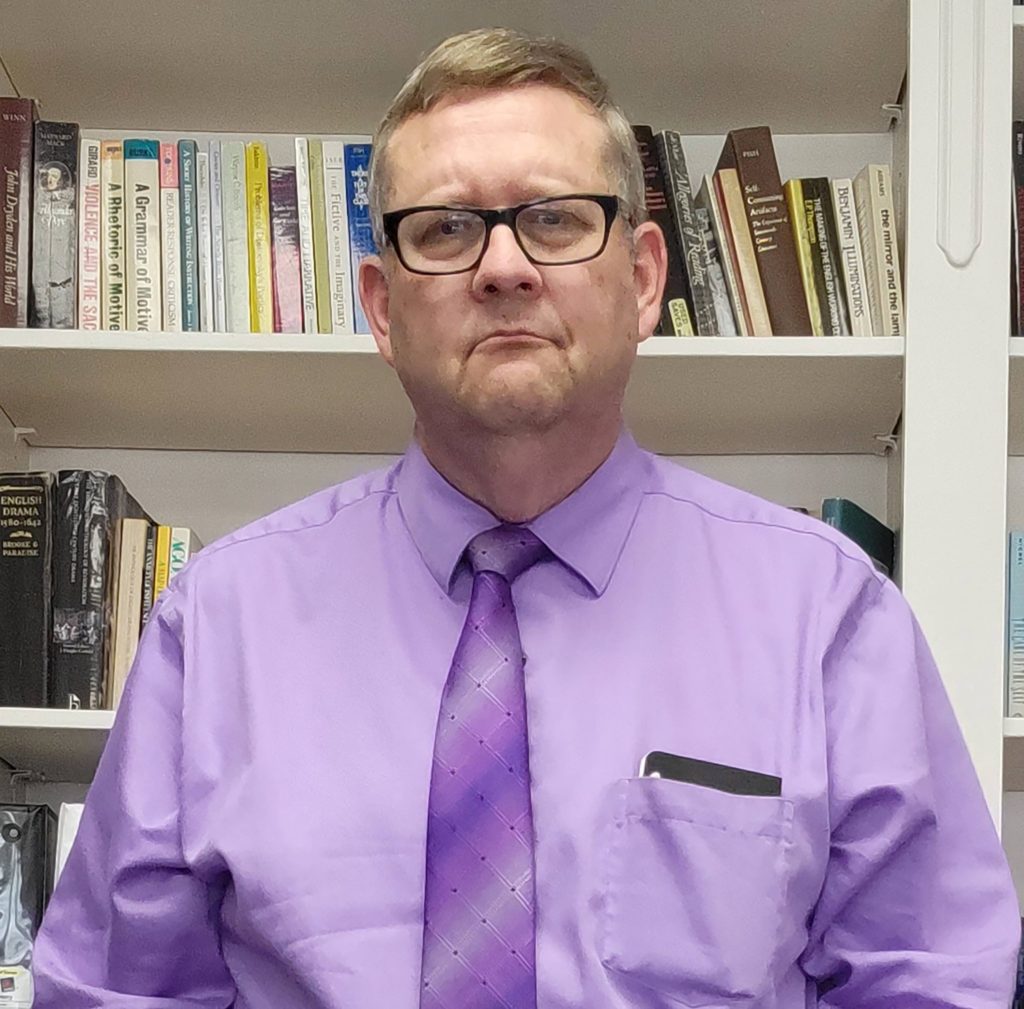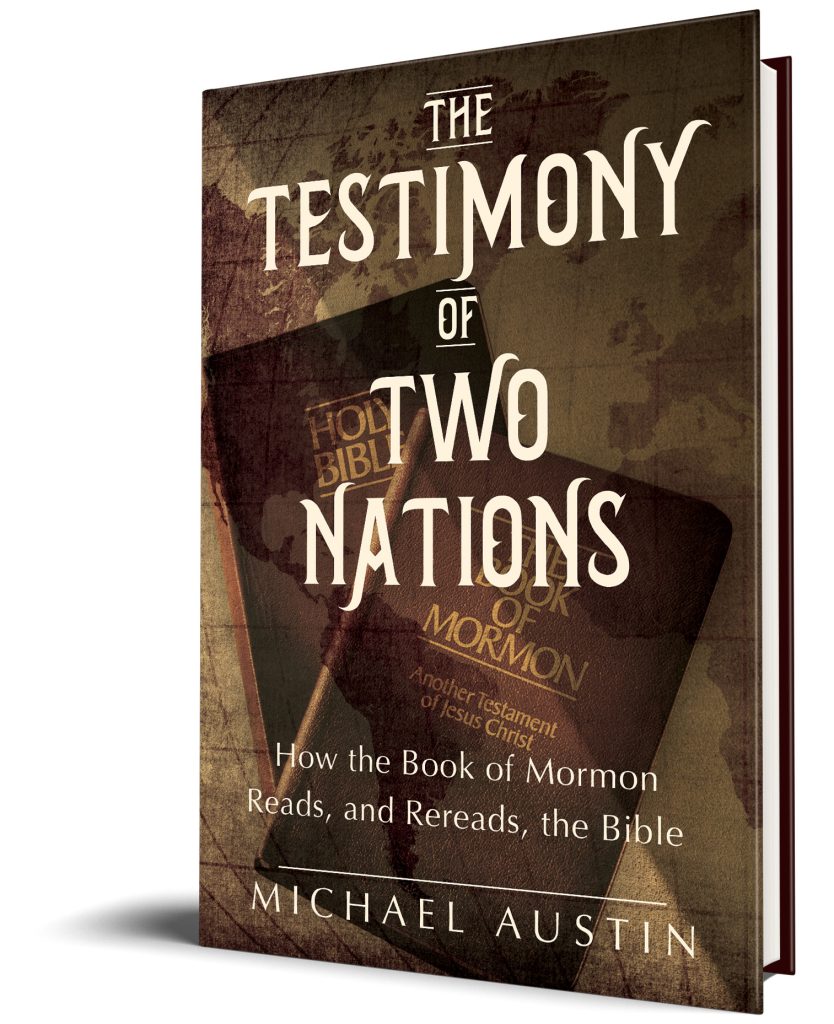Michael Austin, author of The Testimony of Two Nations: How the Book of Mormon Reads, and Rereads, the Bible, answers questions on his new book.
Q: Why did you decide to write this book? Like most of my writing, The Testimony of Two Nations is an attempt to bring different facets of my life together. The Book of Mormon and the Bible have both been important to me, but they have been important for different reasons. The Book of Mormon has always been central to my family’s religious world. My mother read its stories to me (in a novelized children’s version) every night for years, and they are the first stories about anything I can remember. My interactions with the Bible, on the other hand, have usually come through my academic world. I wrote my doctoral dissertation on ways that various factions rewrote stories from the Bible to support political arguments during the English civil wars. And for the first ten years of my career, almost all of my scholarly writing examined the interactions between biblical narratives and English novels. By grappling with how Book of Mormon connects itself to the Bible, I am also grappling with how my religious world connects itself to my scholarly world.
Q: What is the most interesting discovery you made while researching and writing your book? The central question of my study is, what narrative strategies does the Book of Mormon use to attach itself to the Christian Bible? I have been amazed to discover how similar most of the answers to that question are to a question that Christians have been asking for 2,000 years: what narrative strategies does the New Testament use to attach itself to the Hebrew Bible? When I started, I expected that I would find a few similarities. But the more I studied things like typology, type scenes, and canon formation, the more similarities I discovered. The writers of the New Testament understood that they were grafting their own writings onto the Hebrew scriptures in a way that would require believers to reinterpret the earlier texts. The Book of Mormon’s writers understood precisely the same thing.
Q: What myths do you hope your book will dispel or what do you hope your book will help readers unlearn? In his travel memoir Roughing It, Mark Twain famously referred to the Book of Mormon as “chloroform in print.” In The American Religion, Harold Bloom, while enthusiastically endorsing Joseph Smith as a religious genius, dismissed the Book of Mormon as incapable of sustaining a full or close reading. Nothing in The Testimony of Two Nations will change anybody’s mind about the origins of the Book of Mormon. Both those who see it as divinely authored and those who see it as nineteenth-century fiction will find ample reasons in the book to continue holding their opinions. But I would love to lay to rest the perception that the Book of Mormon cannot sustain deep or close reading. I am quite convinced that it can.
Q: Which part of the publishing process did you find the most interesting?
I love the process of working with developmental and copy editors. One of the hardest things for writers to do is to see their words how readers see them—especially those unfamiliar with the issues and concepts that an author takes for granted. This is especially true in a very small scholarly community like Mormon Studies, which often relies on insider knowledge about Mormonism that most people don’t have. A good editor can help writers see what they are taking for granted, and I found that extremely valuable in this book.
Q: What is your advice to scholars/authors who want to take on a similar project? There are a lot of books in the world about the Book of Mormon and the Bible, but most of them were written either by Latter-day Saints with very little understanding of contemporary biblical criticism, or by historians and religious studies scholars unfamiliar with the remarkable body of scholarship about the Book of Mormon that has been produced in the last twenty years. I advise anyone in either of these two groups to learn as much as possible about the other group.
Q: What do you like to read/watch/or listen to for fun? I am a huge fan of mystery novels, from the classics, like Arthur Conan Doyle and G.K. Chesterton, to the books that just came out yesterday. I like most other kinds of fiction, too, and I occasionally get obsessed with a particular non-fiction topic or historical period and read everything I can find about it. My recent obsessions have included evolutionary psychology, America’s founding documents, the speeches of Abraham Lincoln, the book of Job, the Roman Republic, the Peloponnesian War, and the history of Islam.

Michael Austin is the Provost of Snow College. His eight books include Vardis Fisher, winner of the Association for Mormon Letters Award for Best Criticism. He is also a recipient of the Association of Mormon Letters Lifetime Achievement Award.

